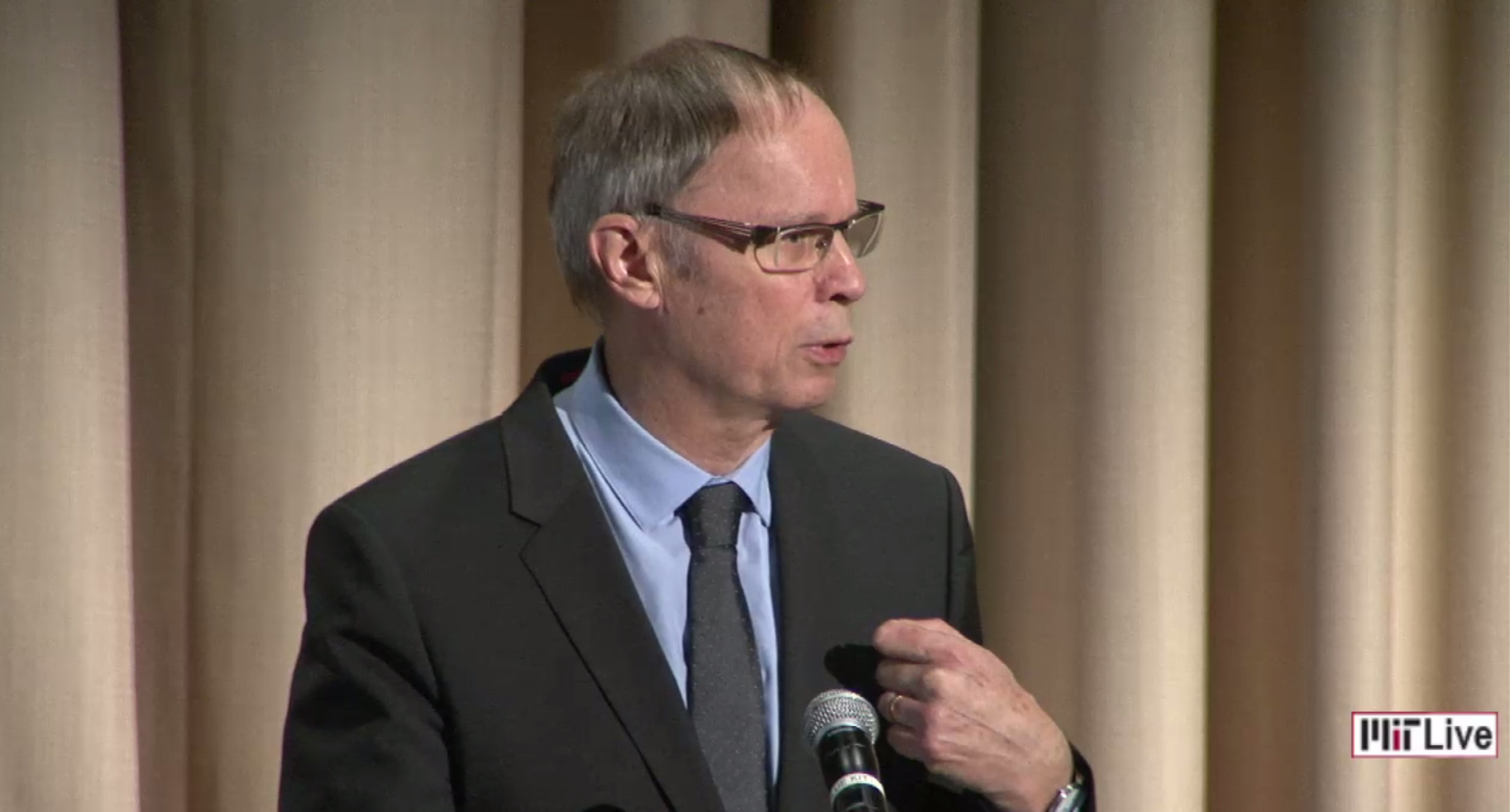Nobel Laureate: Can Economics Work for the Common Good?
-
-
slice.mit.edu
Filed Under
Recommended

Nobel laureate Jean Tirole PhD '81 brought insights from his recent book, Economics for the Common Good, to the MIT Family Weekend audience on October 27. He drew on his digital economy chapter to predict positive changes but also acknowledged that some thorny issues, such as the future of work, must be resolved for the wellbeing of society.
“Every time you have a technological revolution, you have certain impacts on consumers,” says Tirole, who won the 2014 prize in economic sciences in memory of Alfred Nobel for his contributions to industrial organization and microeconomics. “Consumers get better products, better quality, but there are also dangers. For example, with AI and genetics, there is a worry that insurance selections might leave those with bad genes and bad luck with no insurance at all,” he says.
“Are we up to the challenge?” asked Tirole, chair of France’s Toulouse School of Economics and a regular visiting professor at MIT.
For the future of employment, Tirole predicts an expansion in independent work but not, necessarily, the end of salaried work with benefits. Independent work will increase because individuals can now build their own reputations, just as Uber and Lyft drivers do with reviews. “So with the new technologies you can build your own reputation and therefore build a firm,” he says. Salaried work won’t end, either, because many people don’t want the risk involved.
“We economists or the government don’t have to decide if independent or salaried work is better,” says Tirole. “In a sense it’s up to the market to decide. But for the market to function well, it must be the case that you have a level playing field so that social security contributions, pension rights, and insurance are the same for everybody.”
Many people fear they will not have a job in the future, he says. He acknowledged that many jobs are being made obsolete by technological innovations, but noted that the employment landscape is not barren.
“One economist, [John Maynard] Keynes, predicted there would be no jobs by 1965,” he says. “We are suspicious because we think there will be new jobs created but there are two questions. Will the jobs that are created be attractive to the workers, for example, in terms of pay?” And will the new jobs require different skills or, perhaps, be created elsewhere, thus leaving a swath of unemployment in the wake of change.
Tirole says one key question is whether to protect the job or the worker.
“The Scandinavians have understood that it is much better to protect the worker than protect the job, but that lesson is going to become more important over time because job destruction will be faster and faster,” he says. France, in contrast, is creating lots of short-term, or gig, jobs but that strategy doesn’t stabilize employment nor help the economy thrive.
“We have to protect the workers … with good retraining and good unemployment insurance, benefits, and so forth,” says Tirole. “We have to improve education for the mass of people.”
Other digital challenges include employing blockchain technology and machine learning more widely, dealing with speculative crypto currencies like Bitcoin, and developing competition policy in an era of mega-companies like Amazon and Google. Watch his talk online.
“We have a very bright future ahead of us,” he says. “You will lead a healthier life and a richer life but there are also some social consequences of technological progress…we need to think in societal terms as well as engineering terms.”
MIT Family Weekend, hosted by the MIT Alumni Association brought more than 2,400 attendees to campus for two days of festivities, learning, and camaraderie.
Want to tap more expert insights? Watch the recent Faculty Forum Online session featuring alumni experts discussing Better Drinking Water for All?







